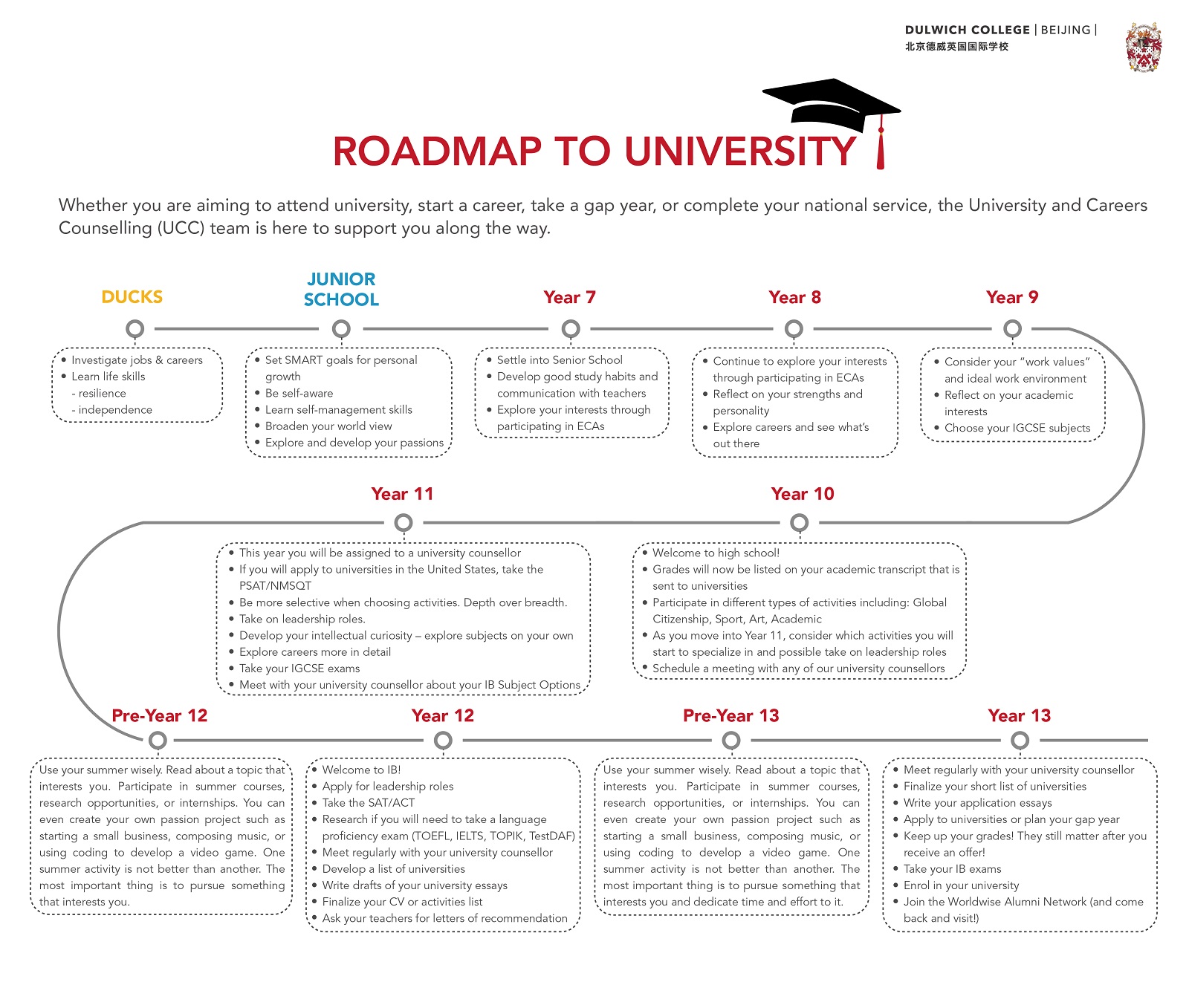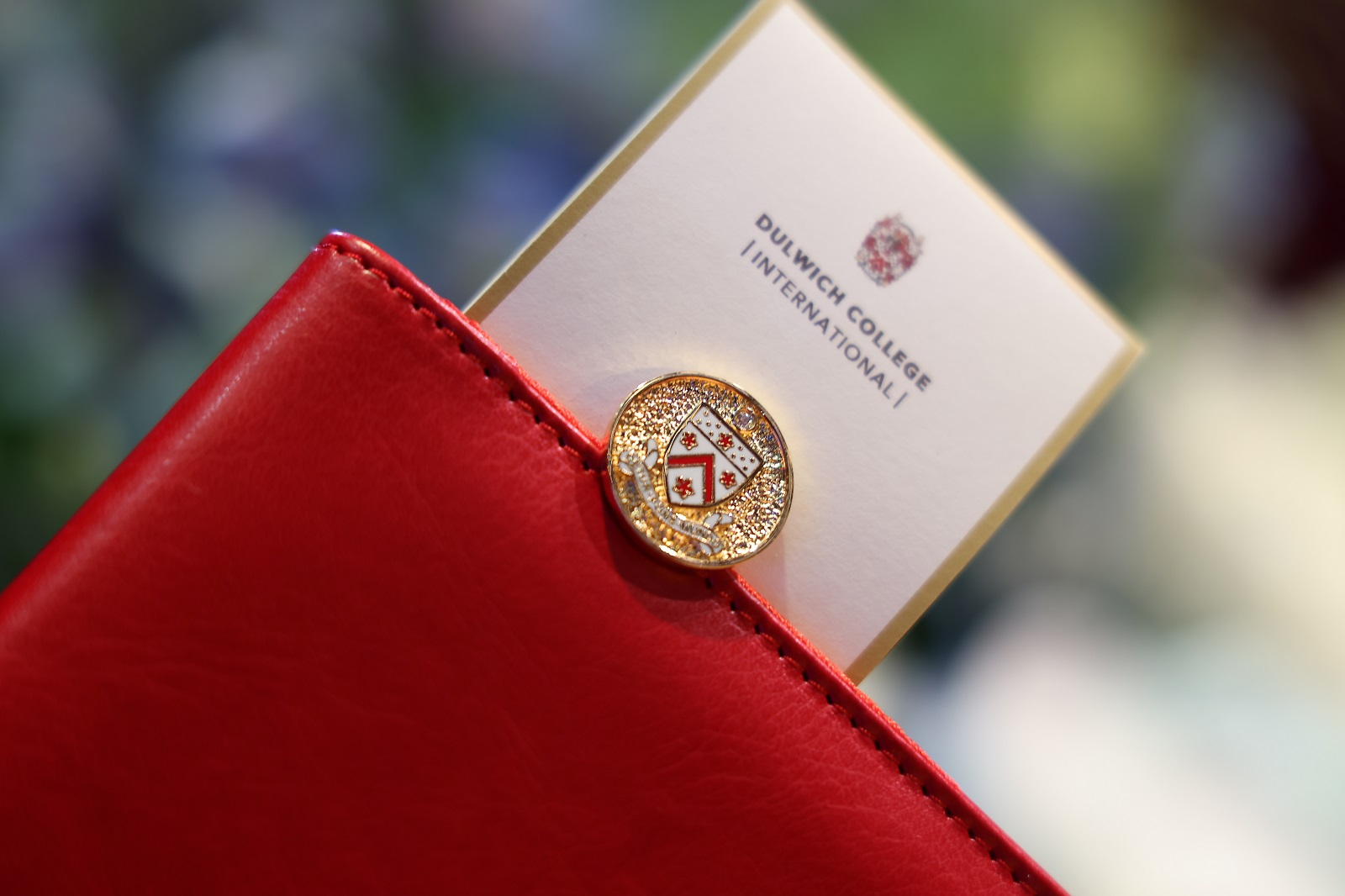DCB Roadmap to University and What US Universities Are (and Aren’t) Looking For
At DCB, we recognise that preparing our students for life after DCB is essential from the get-go. To make it easier for our families to understand the journey to university, our DCB University Counselling and Career (UCC) department has crafted a comprehensive roadmap, guiding our community through the educational journey from preschool to university. This invaluable resource offers a clear and detailed overview, ensuring every student and parent understands the path ahead.

Myths of US Selective Admissions
Two weeks ago, we welcomed counsellors from Dulwich College Shanghai Pudong (DCSPD) and Dulwich College Seoul (DCSL) in a three-school University and Careers Counselling Exchange Programme, providing our families valuable insights into global university systems.

In his presentation Myths of US Selective Admissions, Mr Paul Sweet, the Director of University Counselling at Dulwich College Seoul, shared insights from his time working at highly selective universities such as Boston College. His talk covered a wide range of topics from the use of Demonstration of Interest, Legacy, and athletics in admission to what can be controlled in the admission process and what cannot, as well as what to consider when transferring to a boarding school abroad. Here are some of the popular myths he talked about:
1. US universities are not aware of the IB Diploma - FALSE
Contrary to popular belief, US universities are very aware of the IB Diploma, with more IB schools in the US than in any other country. University admissions officers are professionally trained and read thousands of IB applications per year and IB applicants are highly competitive at institutions like MIT and Berkeley.
2. The school transcript is the most important part of the application - TRUE
Test scores, essays, and activities will not replace poor grades, and universities consider academic trends, which is why course selection is very important.
3. Applying ED can positively influence a decision - TRUE
Applying Early Decision can positively influence admission chances, demonstrating a strong interest in the institution since students who apply for ED must be willing to commit to the university if accepted. Some schools will even accept up to 50% of their students from ED.
4. SAT or ACT scores can make all the difference - FALSE
SAT or ACT scores, while considered, do not solely determine admission outcomes, with many universities adopting a test-optional approach or ignoring them altogether as students tend to only submit very high scores. A reminder that the transcript is the most important part of the application and that low grades but high test scores, depending on the university your child is applying to, might be mistaken as laziness.

Drawing from his extensive experience in US admissions and international UCC counselling, Mr Sweet also shared these valuable lessons:
- Parental support is crucial throughout the university application process.
- University rankings are just a starting point and should not be the sole determinant.
- Universities are not looking for perfection.
- There is not just one school for you.
- A university decision does not define an individual's worth.
- Ultimately, university is what students make of it!








